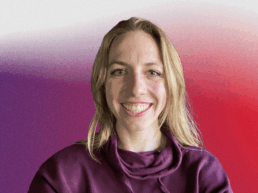How many questions do you ask in a day?
Studies have shown that a typical four-year-old may ask as many as 100–300 questions a day, whereas adults ask only a handful.
Why do we ask fewer questions as adults?
One key reason is the fear of looking foolish. At work we get hired because we are considered capable of doing our jobs with a level of expertise. To ask a question might seem to betray that notion. It is publicly demonstrating that something is beyond your knowledge or capability, and with that may come a sense of shame or embarrassment.
Children are unburdened by the social pressures of having to know things. Their world is full of things they don’t understand, and natural human curiosity causes them to ask question after question to comprehend the world around them.
In fact, this doesn’t really change as we age. Our world still contains a huge number of things we don’t understand.
Why should we ask more questions?
Questions help us understand one another when we form and maintain relationships. They help us delve further into the root of the issue at hand when we’re problem-solving. They allow us to expand our worldview and open up new possibilities during the creative process.
Put simply, a beautiful question can transport us temporarily into a different world where there are different possibilities.
Regina Dugan of DARPA (US Defense Advanced Research Projects Agency) approaches her work with the following question: What would you attempt to do if you knew you could not fail?
Suddenly, the impossible is no longer relevant. You are forced to consider eventualities that would not have crossed your mind. Acting on these seemingly impossible ideas led Dugan, DARPA and others towards incredible advances in technology, robotics, flight, and so on – but it all had to begin with a question.
In the world of sports marketing, it is necessary to approach problem-solving in a similar way. Interesting questions lead to interesting answers, which is at the heart of innovation amongst a landscape of brands desperate to grab attention. By approaching things differently to everybody else and adopting a distinct voice in the marketplace, you can steer attention towards your own brand. Questions serve as a shovel to help us dig into the unknown and the unexplored. By acknowledging what we don’t know, we can take additional steps in directions we wouldn’t have looked into otherwise.
What makes a question beautiful?
In Warren Berger’s The Book of Beautiful Questions, he suggests three key themes for asking great questions.
- Challenge basic assumptions. While adults are more likely to accept that’s ‘just the way the world is’, children aren’t hampered with such expectations and will try to find solutions instead – as discussed earlier, this makes them excellent questioners.
- Shift perspective. Try zooming out to the bigger picture or in on a specific detail; shift to an adjacent idea or consider something else entirely. Shifting perspective means looking from a vantage point other than the one you are accustomed to.
- Be counterintuitive. A much more disruptive line of enquiry, these type of questions invite us to explore the opposite of what we know to be true, subverting our instincts.
Engineer and designer Tony Fadell talks about ‘thinking younger’. He tells the story of asking his young son to pick up the mail from the mailbox and his son replying, ‘Why doesn’t the mailbox just check itself and tell us when it has mail?’.
It challenges the assumption that we must be the ones to check our own mail. It shifts our perspective. It shifts our perspective and asks us to consider a world where mail-checking is something we do passively rather than actively – and this runs counter to the way we typically think of the world.
It is a disruptive question in its nature, and acting on it may lead us to a place of innovation.
How can we use these questions in practice?
Approaching challenges with childlike curiosity means we are less likely to rely on gut instinct. Sometimes asking the right question is more important than having the right answer.
Whilst working on our ‘A Bond Like No Other’ campaign for FEI, Redtorch decided that to be successful our process had to start with the question: ‘What makes equestrian sports unique among other sports?’. This line of inquiry ensured that we created a fantastic Olympic campaign specifically tailored to the client.
For creativity to become more fruitful and enjoyable, can we end more sentences with question marks rather than full stops?





